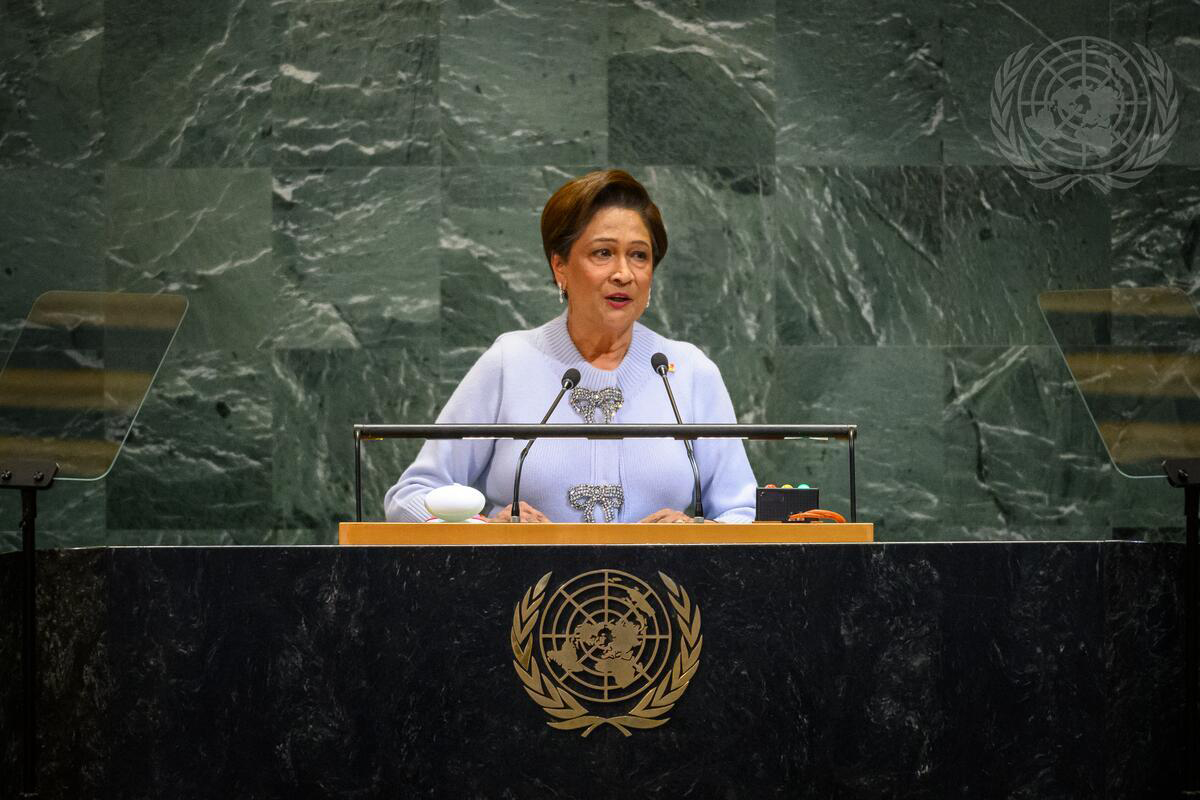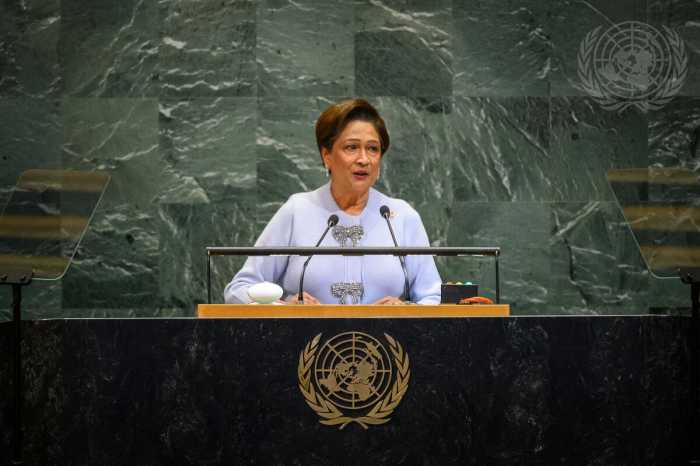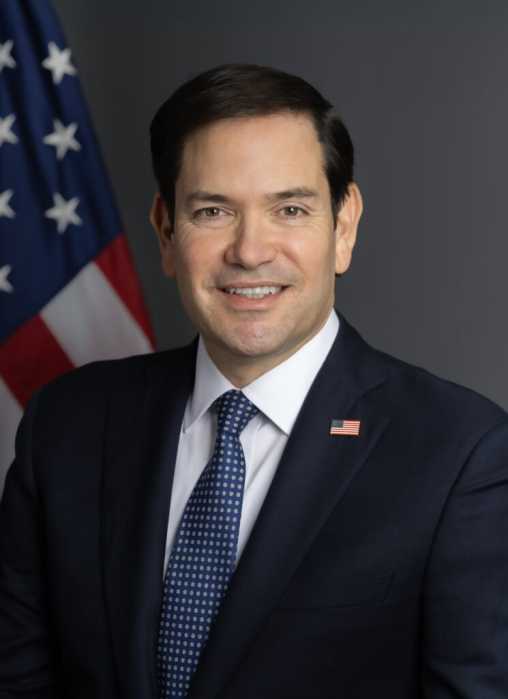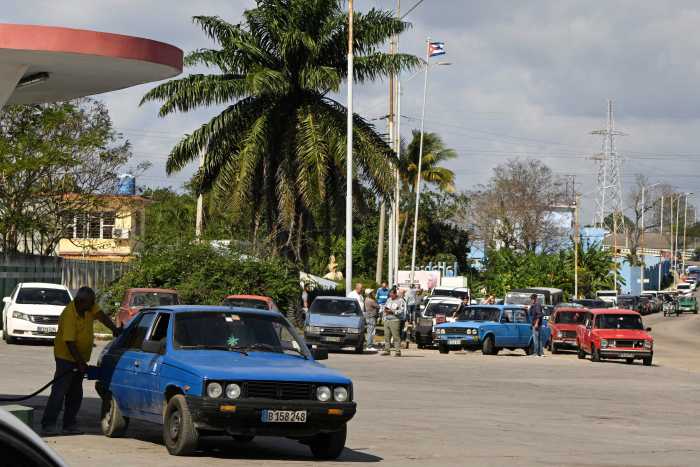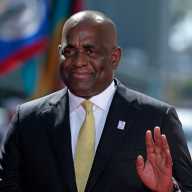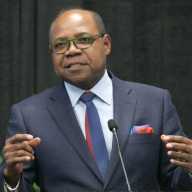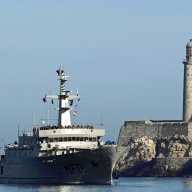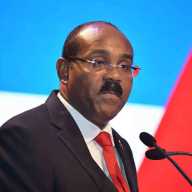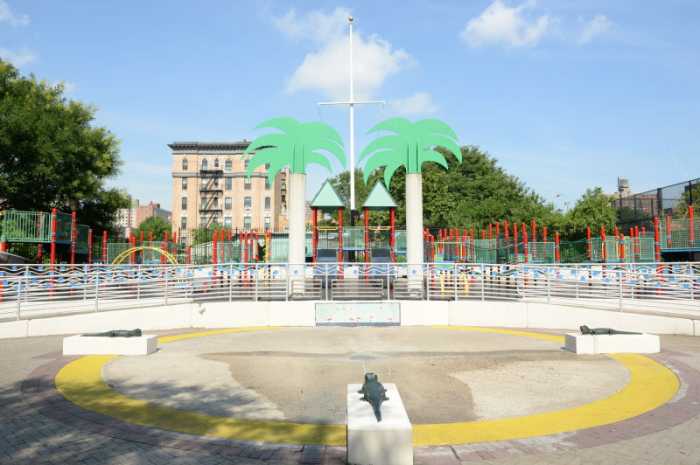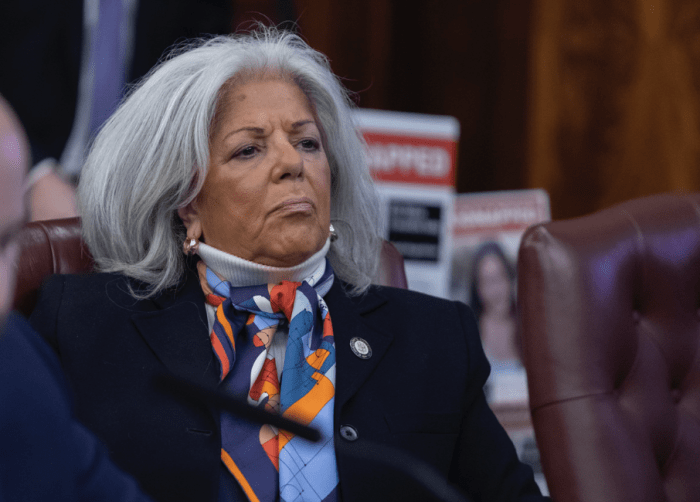As tensions rise between the US and Venezuela over an apparent impending military conflict, desperate regional leaders have now offered themselves as mediators, urging both sides to talk before it is too late.
And caught in the middle of all this is the federation of Trinidad and Tobago, where the USS Gravely, a US guided missile destroyer docked in Trinidad on Sunday, moored in a local port just about 20 miles from the Venezuelan coast. This means that this is the closest known position of a US military vessel to Venezuela since Washington recently began its military build-up and threats of regime change in the Southern Caribbean, presumably to eradicate international narco trafficking and possible regime change in oil and gas-rich Venezuela.
Local authorities say the destroyer with more than 300 sailors on board is on the island for joint training exercises with Venezuelan authorities. However, Venezuelan authorities are making it clear that they believe that the administration of Prime Minister Kamla Persad Bissessar is facilitating the US with its military ambitions against Venezuela. They also contend that the visit is a provocation against the South American nation, facilitated by a government that has taken the side of the US in its alleged war against narco trafficking.
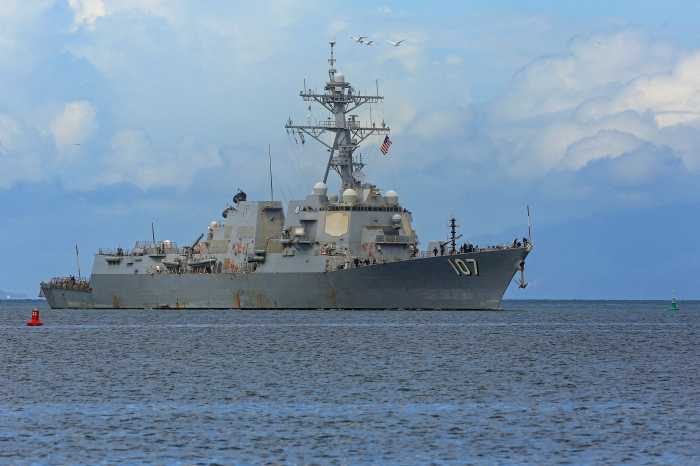
“The government has renounced the sovereignty of T&T to act as a military colony subordinate to US hegemonic interests, turning its territory into a US aircraft carrier for the war throughout the Caribbean against Venezuela, Colombia, and all of South America,” a Venezuelan government statement noted. “By folding to Washington’s militaristic agenda, Persad-Bissessar not only intends to attack Venezuela – a country that has always maintained a policy of energy co-operation, mutual respect, and Caribbean integration – and break our historic bonds of brotherhood,” the statement noted.
Countering the Venezuelan position and interpretation of the situation, PM Persad Bissessar argued that her federation’s closeness to Venezuela places it in a unique position, forcing it to act in its own national interest. She has no plans to back off.
“Historically and geographically, we are closest to where the drugs are coming from, the narco-trafficking, human trafficking, and gun running. The other islands are further north – we are more southern and closest to the South American mainland. Their experience may be different from ours in T&T. “They are entitled to their view on the whole issue of a zone of peace, but in T&T, there is clearly no zone of peace. As I always say: T&T first. We have to take care of our people first. We are the most affected by this,” she told reporters at the weekend.
And while hundreds gathered at the port to watch the moored vessel, desperate regional leaders asked to be at the negotiating table before it was too late. Leading the charge for peace were Dominican Prime Minister Roosevelt Skerrit and Mia Mottley of Barbados, with the visiting Dominican sharing a political platform in Barbados with Mottley over the weekend.
“Of course, we in Barbados and Dominica, and indeed the wider Caribbean, offer ourselves as intermediaries so that we can bring the two forces together and let us understand that there can be common sense and agreement, and disagreement — but we have to ensure that we do not have a situation of our region descending into turmoil,” he said.
Mottley spoke of judicial and military overreach with the string of high-sea attacks by the US on alleged narco vessels.
“We have to speak up. I believe that the time has come for us, therefore, to be able to ensure that we do not accept that any entity has the right to engage in extra-judicial killings of persons that they suspect of being involved in criminal activities. If there are conflicts and disputes that are in need of resolution, then the place that needs to be taken for such resolution is the UN. The methodology that must be deployed for the resolution is one of negotiation and peaceful actions taken in order to ensure that we can settle disputes,” she said.
Their remarks follow a plea by nearly a dozen former heads of government, asking the US to pull back from military action in an area that has long paraded itself as a zone of peace. Bishops from the Antillean Episcopal Conference also called for peace and good sense to prevail.
Venezuelan authorities, meanwhile, hurled stinging criticism at Trinidad in a statement, alleging that the government there is helping the US with its war plans.
As the region monitors developments, including the deployment of the US’s largest and most powerful warship, attention is also being paid to neighboring Grenada. The US has asked Grenada to allow it to set up a military radar station at the main airport, just about 100 miles from the Venezuelan mainland. PM Dickon Mitchell has promised an update to his nation, which the US had invaded back in 1983, this week.


